Storm clouds are gathering for the Irish milk industry, the head of the National Dairy Council (NDC) has warned.
Growing anti-dairy sentiment worldwide, a lack of information and desire to fight back from the dairy industry, combined with the fashionable trend for plant-based alternatives, are threatening.
Plant-based alternatives have the potential to do to milk what margarine did to butter 30 years ago, NDC chief executive Zoe Kavanagh told the Irish Farmers Journal.
The shift is already under way in Europe, where milk consumption is in rapid decline. Denmark, Belgium and France have recorded year-on-year declines of 5% to 10% in milk consumption.
Women aged 20 to 29 today will have the single biggest influence on milk drinking in Ireland in the next 10 years. As they become mothers, they will decide what to buy for their families and influence others with their choices.
Plant-based drinks
But Ireland’s current crop of 20- to 29-year-olds are increasingly moving away from milk in favour of drinks made from almond, soya, coconut and other plants.
Alternative drinks are becoming more mainstream and are therefore easier to find in the supermarket and order in the café.
They also tick a big health and image box for young women who are heavily influenced by social media and easily swayed by beautiful and trendy influencers and bloggers.
Millennial women are more likely to take note of what an Instagram celebrity promotes as a healthy choice than what a doctor, nutritionist or scientist can back up with research and facts.
They are readily put off by negative dairy perceptions that spread quickly on social media (see Dairy is Scary, below) and are propagated by hardcore vegans.
The women who reject milk usually cite welfare, health or the environment as their reason to switch to plant-based alternatives.
Foods that are “free-from” are a growing presence in both shops and in the media, with sugar-free, lactose-free, gluten-free and dairy-free products appearing on shelves more often than ever before.
While just 4% of the Irish population is diagnosed as lactose intolerant, as much as 15% to 20% of people claim to suffer from it.
‘Free-from’ foods
A November 2017 Kantar Worldpanel survey revealed that the “free-from” sector has grown by more than 24% in the last year.
“Free-from” foods are embraced by celebrities, bloggers and chefs, which appeals to the millennial audience.
Non-dairy drinks are also embraced by supermarkets because they are a premium product, with a higher profit for the supermarkets. This secures them more shelf space than conventional cows’ milk, which is used as a loss-leader by supermarkets to attract customers in price wars.
The Kantar Worldpanel survey found that dairy-free products account for 2% of the market in volume terms and almost 4% in value.
While this may be small, it is growing at a ferocious rate, rising by 10% in the last year alone.
Almond drinks are leading the charge, recording a 35% growth in the past year. Almond- and soya-based drinks account for more than half of all dairy-free beverages on sale in Ireland.
Zoe Kavanagh of the NDC says it is time for the dairy sector to fight back – by disrupting the anti-dairy trend, getting dairy’s benefits noticed and clarifying the facts for confused consumers. To that end, the NDC’s latest marketing campaign is focused on targeting millennials through the media channels they use and by tapping into the celebrity and image-obsessed culture they live in.
X-Factor
In September, the NDC flew X-Factor judge and pop Svengali Louis Walsh, alongside models Vogue Williams and Glenda Gilson, by helicopter to the National Ploughing Championships to promote dairy.
Last month, it hosted a pop-up milk bar in Dublin’s trendy South William Street. The pop-up was officially launched by Made in Chelsea reality TV stars Binky Felstead and Josh Patterson (JP) and gave away free milk shakes, smoothies, hot chocolate, coffee and ice cream for a week.
“The Daily Mail/Mail Online, which has something like 11m views daily, ran our full press release on dairy, plus all 11 photos,” said Kavanagh.
“Coverage like that is an incredibly powerful tool to change the perception of dairy. We are trying to be trendy, to influence the influencers.”
Louis’s Ploughing visit garnered €175,000 worth of publicity in print and online, while Binky and JP’s five-hour appearance generated €95,000 of coverage in the first 12 hours alone, with monthly glossy magazine coverage still to follow.
The NDC’s aim with The Complete Natural campaign is to halt the slide in milk consumption and spur the dairy industry into taking action before it is too late.
A vegan diet is one which does not use or contain any animal products, including meat, fish, milk and eggs.
A person following a strict vegan lifestyle will not use leather, wool or silk and will not use cosmetics, soaps, or medicines that feature animal-derived ingredients or animal-tested ingredients.
The growing anti-dairy sentiment worldwide has been spurred on by documentaries widely available through social media, YouTube, and streaming websites such as Netflix. One such example is Dairy is Scary, a five-minute video created by You Tube star Erin Janus.
The video features highly emotive language, with Janus referring to dairy cows being “sexually exploited”, “impregnated in rape racks” and “emotionally and physically exhausted” before being killed for meat.
The video footage is a compilation of images from disparate sources, with no references or explanation as to where the footage was sourced or what is being shown. It includes images of downer cows, dead cows and some clearly abusive footage, incorrectly portraying it as normal practice on all farms.
The video has garnered more than 4.5m views since it was published in December 2015.
Read more
Listen: vegan voices: 'Time to shut down the bullshit' - National Dairy Council
Dairy-free fad causing permanent damage to people's health
Milk wars: vegans take on the National Dairy Council
Storm clouds are gathering for the Irish milk industry, the head of the National Dairy Council (NDC) has warned.
Growing anti-dairy sentiment worldwide, a lack of information and desire to fight back from the dairy industry, combined with the fashionable trend for plant-based alternatives, are threatening.
Plant-based alternatives have the potential to do to milk what margarine did to butter 30 years ago, NDC chief executive Zoe Kavanagh told the Irish Farmers Journal.
The shift is already under way in Europe, where milk consumption is in rapid decline. Denmark, Belgium and France have recorded year-on-year declines of 5% to 10% in milk consumption.
Women aged 20 to 29 today will have the single biggest influence on milk drinking in Ireland in the next 10 years. As they become mothers, they will decide what to buy for their families and influence others with their choices.
Plant-based drinks
But Ireland’s current crop of 20- to 29-year-olds are increasingly moving away from milk in favour of drinks made from almond, soya, coconut and other plants.
Alternative drinks are becoming more mainstream and are therefore easier to find in the supermarket and order in the café.
They also tick a big health and image box for young women who are heavily influenced by social media and easily swayed by beautiful and trendy influencers and bloggers.
Millennial women are more likely to take note of what an Instagram celebrity promotes as a healthy choice than what a doctor, nutritionist or scientist can back up with research and facts.
They are readily put off by negative dairy perceptions that spread quickly on social media (see Dairy is Scary, below) and are propagated by hardcore vegans.
The women who reject milk usually cite welfare, health or the environment as their reason to switch to plant-based alternatives.
Foods that are “free-from” are a growing presence in both shops and in the media, with sugar-free, lactose-free, gluten-free and dairy-free products appearing on shelves more often than ever before.
While just 4% of the Irish population is diagnosed as lactose intolerant, as much as 15% to 20% of people claim to suffer from it.
‘Free-from’ foods
A November 2017 Kantar Worldpanel survey revealed that the “free-from” sector has grown by more than 24% in the last year.
“Free-from” foods are embraced by celebrities, bloggers and chefs, which appeals to the millennial audience.
Non-dairy drinks are also embraced by supermarkets because they are a premium product, with a higher profit for the supermarkets. This secures them more shelf space than conventional cows’ milk, which is used as a loss-leader by supermarkets to attract customers in price wars.
The Kantar Worldpanel survey found that dairy-free products account for 2% of the market in volume terms and almost 4% in value.
While this may be small, it is growing at a ferocious rate, rising by 10% in the last year alone.
Almond drinks are leading the charge, recording a 35% growth in the past year. Almond- and soya-based drinks account for more than half of all dairy-free beverages on sale in Ireland.
Zoe Kavanagh of the NDC says it is time for the dairy sector to fight back – by disrupting the anti-dairy trend, getting dairy’s benefits noticed and clarifying the facts for confused consumers. To that end, the NDC’s latest marketing campaign is focused on targeting millennials through the media channels they use and by tapping into the celebrity and image-obsessed culture they live in.
X-Factor
In September, the NDC flew X-Factor judge and pop Svengali Louis Walsh, alongside models Vogue Williams and Glenda Gilson, by helicopter to the National Ploughing Championships to promote dairy.
Last month, it hosted a pop-up milk bar in Dublin’s trendy South William Street. The pop-up was officially launched by Made in Chelsea reality TV stars Binky Felstead and Josh Patterson (JP) and gave away free milk shakes, smoothies, hot chocolate, coffee and ice cream for a week.
“The Daily Mail/Mail Online, which has something like 11m views daily, ran our full press release on dairy, plus all 11 photos,” said Kavanagh.
“Coverage like that is an incredibly powerful tool to change the perception of dairy. We are trying to be trendy, to influence the influencers.”
Louis’s Ploughing visit garnered €175,000 worth of publicity in print and online, while Binky and JP’s five-hour appearance generated €95,000 of coverage in the first 12 hours alone, with monthly glossy magazine coverage still to follow.
The NDC’s aim with The Complete Natural campaign is to halt the slide in milk consumption and spur the dairy industry into taking action before it is too late.
A vegan diet is one which does not use or contain any animal products, including meat, fish, milk and eggs.
A person following a strict vegan lifestyle will not use leather, wool or silk and will not use cosmetics, soaps, or medicines that feature animal-derived ingredients or animal-tested ingredients.
The growing anti-dairy sentiment worldwide has been spurred on by documentaries widely available through social media, YouTube, and streaming websites such as Netflix. One such example is Dairy is Scary, a five-minute video created by You Tube star Erin Janus.
The video features highly emotive language, with Janus referring to dairy cows being “sexually exploited”, “impregnated in rape racks” and “emotionally and physically exhausted” before being killed for meat.
The video footage is a compilation of images from disparate sources, with no references or explanation as to where the footage was sourced or what is being shown. It includes images of downer cows, dead cows and some clearly abusive footage, incorrectly portraying it as normal practice on all farms.
The video has garnered more than 4.5m views since it was published in December 2015.
Read more
Listen: vegan voices: 'Time to shut down the bullshit' - National Dairy Council
Dairy-free fad causing permanent damage to people's health
Milk wars: vegans take on the National Dairy Council




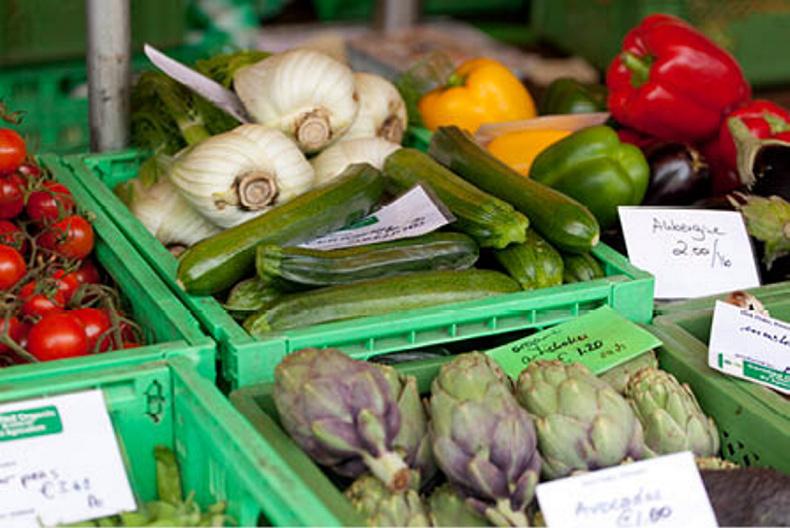
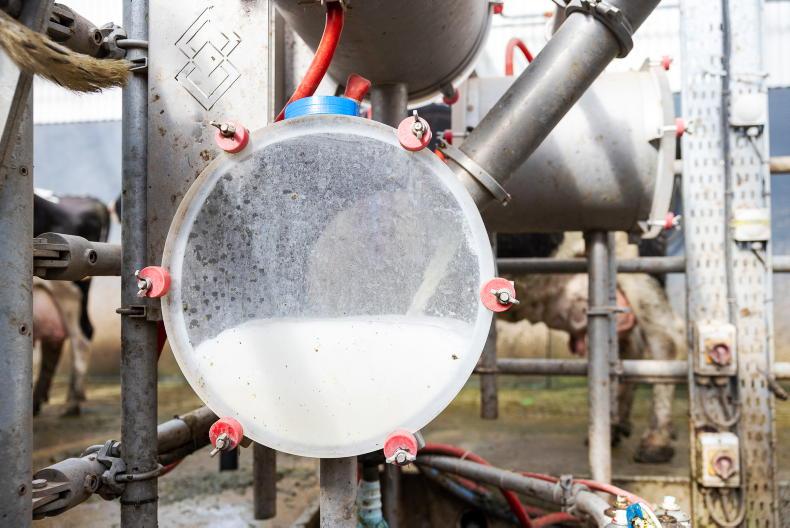

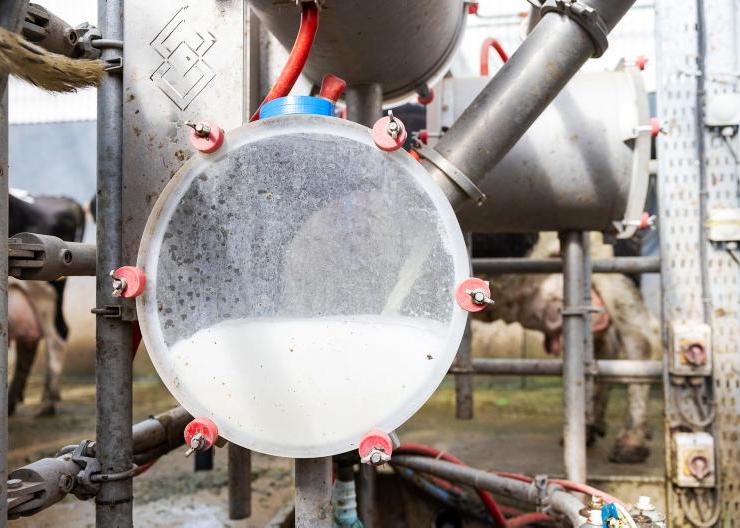
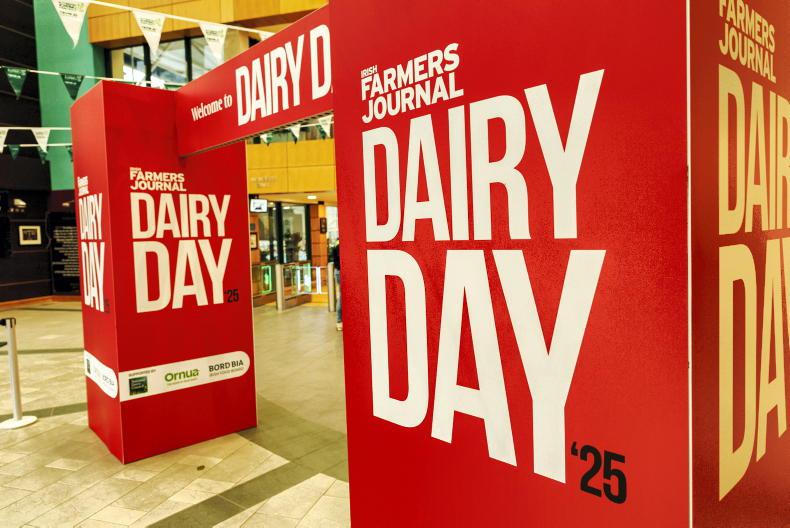
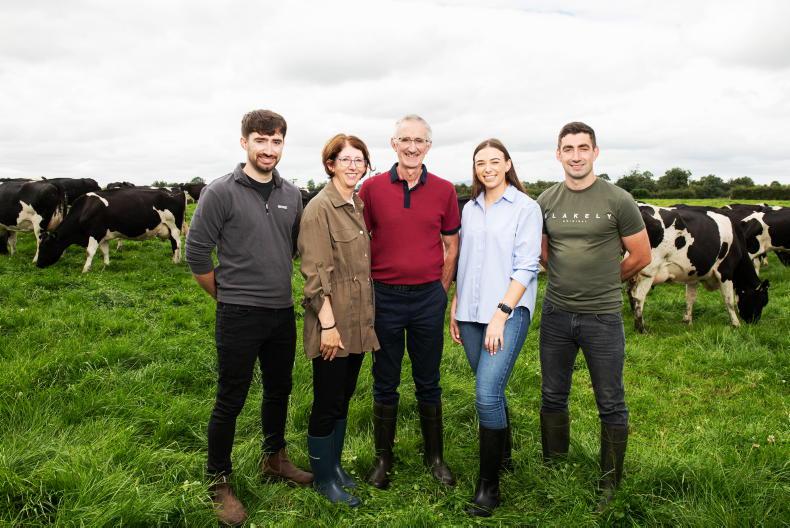
SHARING OPTIONS